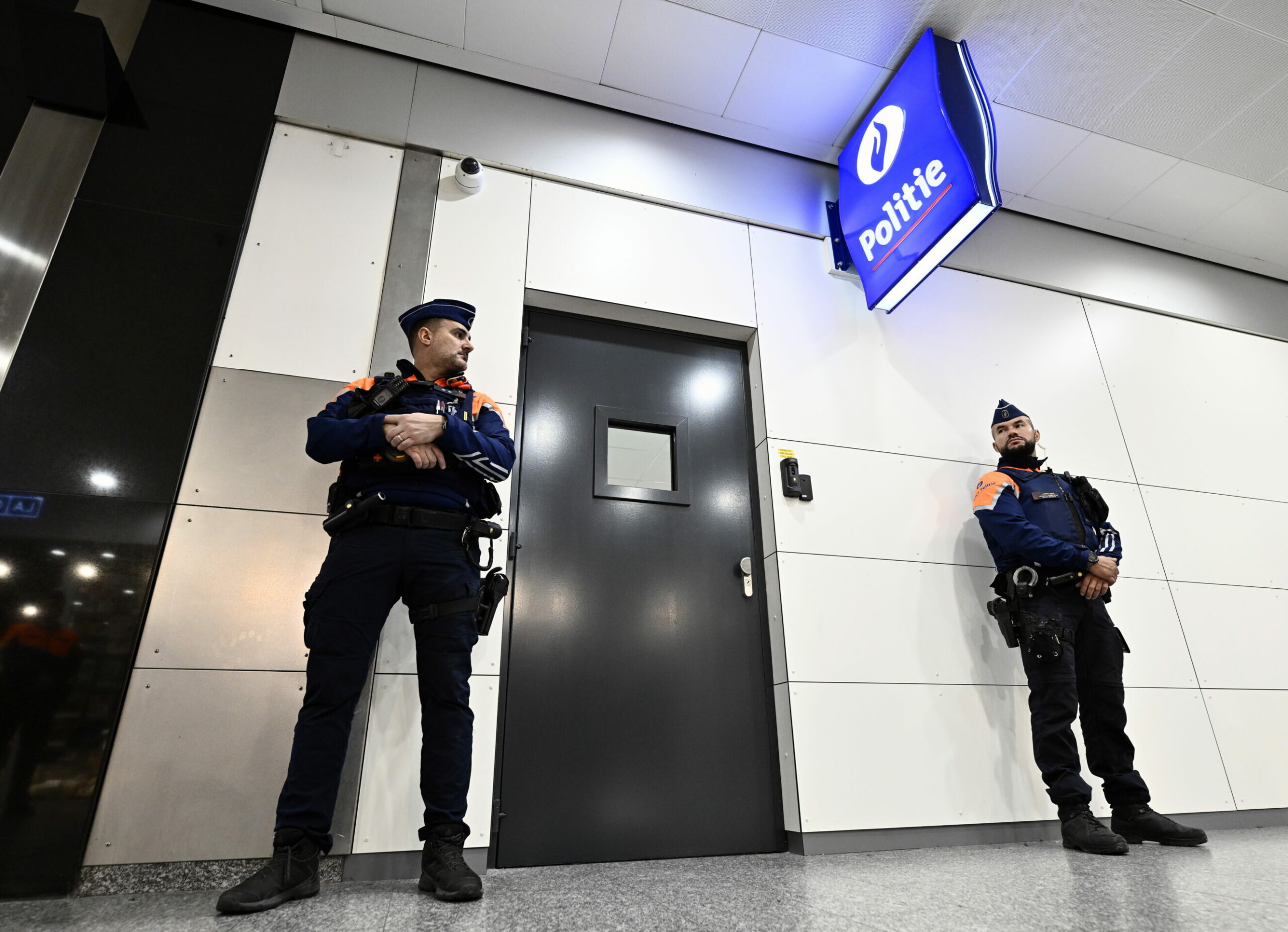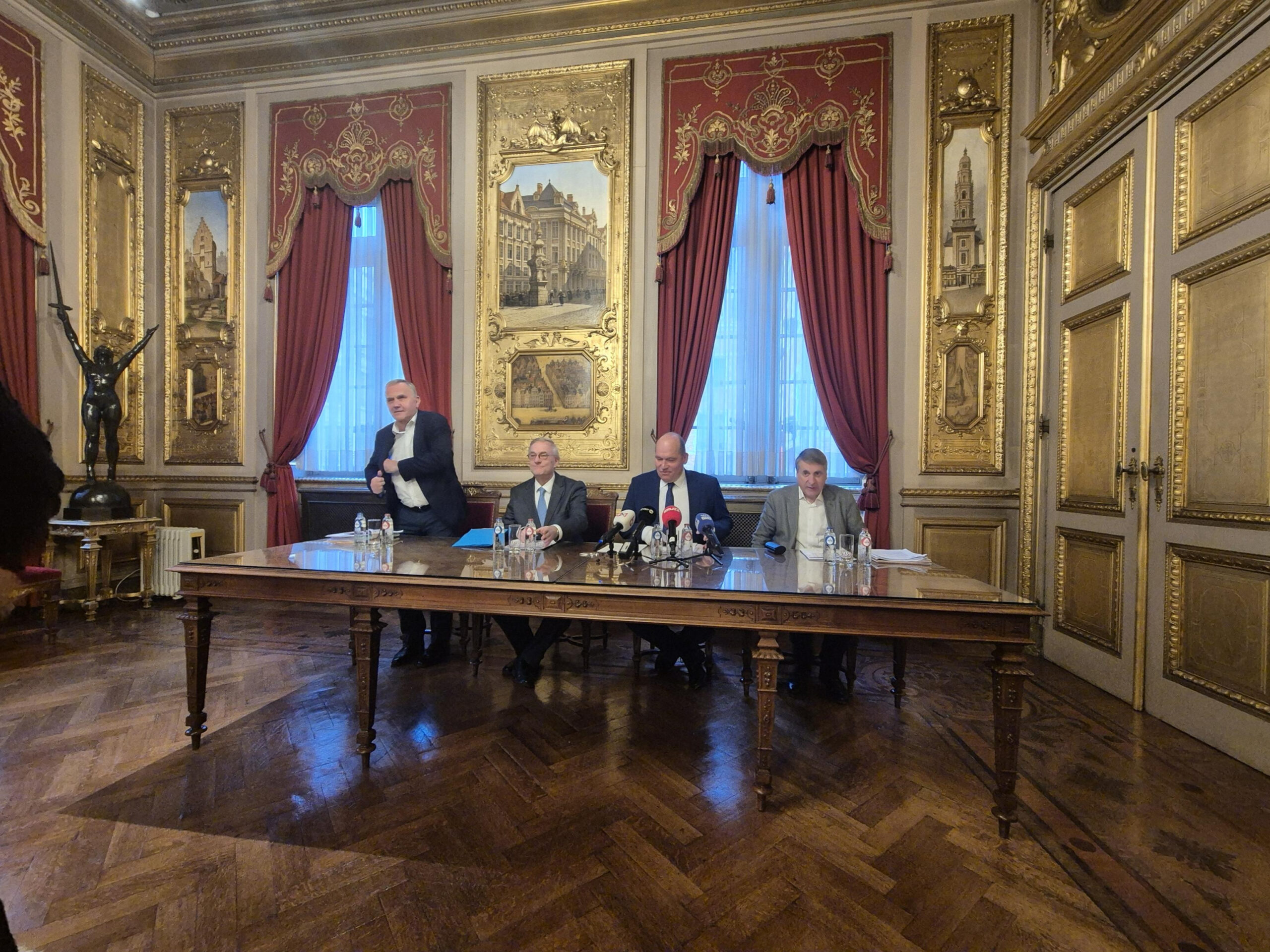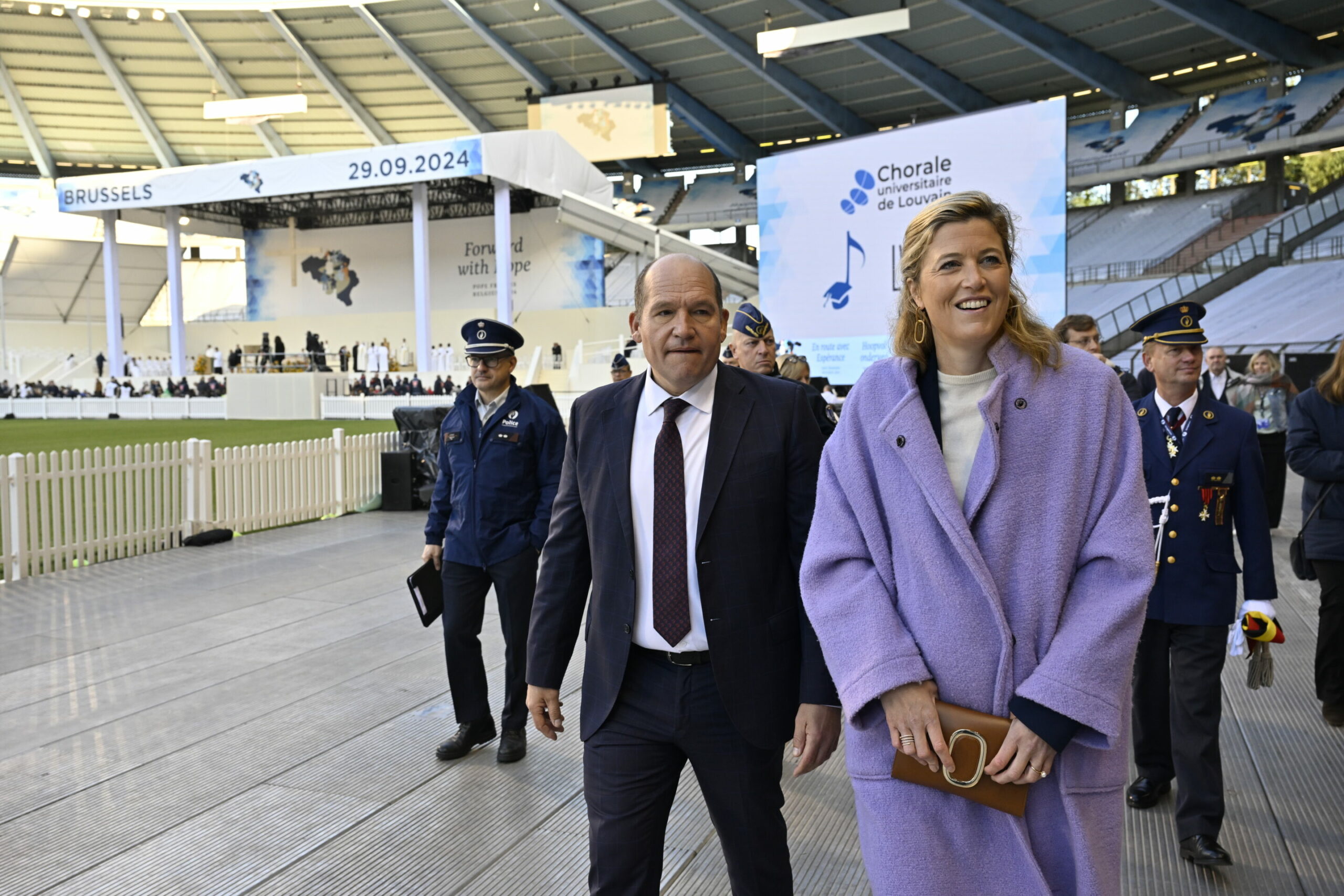The question of merging Brussels' six police zones has resurfaced as the city grapples with rising crime. But the proposal has been spurned by the 19 mayors of Brussels. Why is their opposition to a merger so ferocious?
As the New Year rolled into Brussels, local mayors felt the need to call a press conference to reiterate their opposition to a merger of the six police zones in Brussels.
Seated in a gilded room in Brussels town hall on Grand Place, four of them sat before reporters and explained at length why a merger was a bad idea.
"We would never hesitate if we thought it would improve things," City of Brussels mayor Philippe Close (PS) said. "There is no added value in merging," according to Etterbeek mayor Vincent de Wolf (MR).
The new Federal Government formed on Friday intends to create a single, unified police zone for the entire Brussels-Capital Region. "It has become clear in recent years that the security forces in Brussels are far too fragmented," Prime Minister Bart De Wever (N-VA) said. Coalition partners argue that the separation of police forces has allowed criminal organisations to flourish.
Local forces not the issue
Belgium has one federal police force to manage large-scale crime while 196 zones represent local policing. Six of these zones are spread across the 19 municipalities of Brussels. While zone mergers have occurred in other Belgian cities, all 19 Brussels mayors are "unanimous" in their opposition to the measure.
They argue that inter-police zone collaboration in Brussels already works well, the zones are at an optimal size and much bigger than in other Belgian cities. They shift attention to chronic underfunding that puts strain on both federal and local police forces.

Credit: Belga / Eric Lalmand
Finally, mayors want more support for local branches forced to deal with "issues that go beyond borders", namely crime related to international drug trafficking.
The press conference did not come as a big surprise to Criminology Professor at the University of Liège Vincent Seron, who says all of the mayors' reasons for opposing a merger are valid.
"Belgium has been debating police zone mergers for almost 25 years. It regularly comes up on the political agenda and always concludes that a merger is unnecessary," he told The Brussels Times.
Question of community
The arguments are strong but it doesn't answer the question: why is mayoral opposition to the idea so pronounced?
Communitarian divides cleave the merger debate: every single mayor in Brussels is Francophone, and Wallonia has a tradition of defying centralised power.

Press conference against police mergers. L-R: Woluwe-Saint-Pierre mayor Benoit Cerexhe, Etterbeek mayor Vincent De Wolf, Brussels-Ville mayor Philippe Close and Woluwe-Saint-Lambert mayor Olivier Maingain on 22 January 2025. Credit: Belga
Flanders tends to prefer strong, centralised power when it comes to policing (ironic considering the rightwing N-VA and far-right Vlaams Belang want an autonomous region separate from Belgium). In Brussels, most Flemish parties pushed for a Brussels merger, The only Francophone party to do so during local elections was Ecolo.
"We are dealing with two different cultures," says Seron. "Neither is right or wrong. They are just two ways of looking at policing."
It is also logical that mayors are against anything that might make a dent in their power, and the centralisation of police forces would lead to just that. "In Belgium, the mayor is the head of the administrative police, so at local level, this is one of their major areas of responsibility. A merger would hand power over to the police rather than the current mayor."
An idea that just won't die
As violent, drug-related crime makes headlines and politicians capitalise on feelings of insecurity, Seron wonders whether the argument in favour of a merger is a question of efficiency, cost-cutting or politics.
"I think it would be useful to know what the purpose of this reform is going to be and what the objectives and indicators are that we really want to highlight in order to demonstrate that it will be effective."

City of Brussels mayor Philippe Close and Federal Minister Annelies Verlinden attend a holy mass at the King Baudouin Stadium in Brussels on Sunday 29 September 2024. Credit: Belga
"In many countries you have decentralised police structures that function." The federal police already serve as a national police force, and besides, "decentralisation is not necessarily a sign of police inefficiency."
Those against a merger like to point out that outgoing Interior Minister Annalies Verlinden (CD&V), whose party is in favour of the measure, conceded last year that "it is difficult at present to give very precise figures on efficiency gains in the event of a merger."

